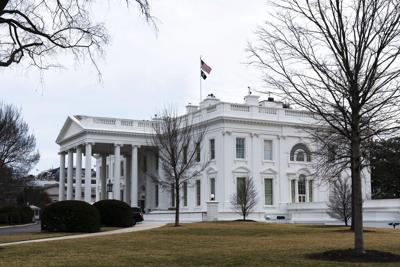WASHINGTON — A number of top Biden administration officials will remain restricted in how they communicate with the country's largest social media platforms about the content they host, a federal appeals court ruled.
The 5th U.S. Circuit Court of Appeals on Friday found that President Joe Biden's White House and the Centers for Disease Control likely violated the Constitution's First Amendment by asking social media companies to crack down on misinformation about COVID-19.
A three-judge panel rejected the Justice Department's request to fully reverse an order from a Louisiana judge that prevents the U.S. government from communicating with the tech companies about many topics.
The panel, which featured three judges appointed by Republican presidents, agreed to pause the effect of its ruling for 10 days to allow the Justice Department to ask the U.S. Supreme Court to intervene. The Justice Department previously indicated it's prepared to take the case to the high court.
The decision is a partial victory for the conservative attorneys general of Missouri and Louisiana, who argued that the White House infringed on the free-speech rights of Americans by urging social media companies to remove posts and accounts accused of spreading misinformation about the pandemic and some political topics.
Republicans have mobilized against the Biden administration over its handling of COVID-19, arguing the government silenced people with differing viewpoints. The White House has insisted it was trying to improve public health and ensure factual information reached Americans during the deadly pandemic.
The appeals court panel wrote that the Biden officials cited in the order "have engaged in a broad pressure campaign designed to coerce social-media companies into suppressing speakers, viewpoints, and content disfavored by the government."
"The harms that radiate from such conduct extend far beyond just the plaintiffs; it impacts every social-media user," the panel wrote.
But the decision also significantly narrowed the initial sweeping July 4 injunction from U.S. District Judge Terry Doughty, which barred a wide swath of Biden administration officials from communicating on many topics with the social media companies. The 5th Circuit judges agreed with the Justice Department's complaints that the injunction was overly broad.
The court left in place a key part of Doughty's original order, barring communications by certain White House and federal agency officials that amounts to "compelling the platforms to act," such as by threatening punishment if they do not comply with particular requests or "supervising, directing or otherwise meaningfully controlling" the companies' decisions about online speech.
The New Orleans-based court, which handles appeals from federal cases in Louisiana, Mississippi and Texas, is considered one of the most conservative in the country; Republican state attorneys general have brought many of the legal challenges to the Biden administration in the states within its borders.
The 74-page opinion wasn't signed by a single judge as the author. The panel featured Judges Edith Clement and Jennifer Elrod, both appointed by former President George W. Bush, along with Judge Don Willett, who was appointed by former President Donald Trump.
In a statement, Missouri Attorney General Andrew Bailey said Friday's decision was "another brick" in the "wall of separation between tech and state."
A Justice Department spokesperson declined to comment. A spokesperson for the Louisiana attorney general's office and an attorney for individual social media users who had sued the administration as well didn't immediately respond to requests for comment.
The ban has already started to disrupt government business. The State Department in early July canceled a call with social media representatives as the Biden administration reviewed the Louisiana injunction and its implications, according to a State Department official. The call was focused on identifying foreign threats online. The appeals court lifted the injunction on the State Department.
The challengers — the attorneys general and individual users who said they faced repercussions for their online speech — presented reams of internal communications between White House officials and the social media companies, which showed White House officials sometimes forcefully urging Facebook and YouTube to combat online vaccine hesitancy and false information about COVID-19 cures.
The Supreme Court has been increasingly pulled into the debates over regulating online speech. The high court this upcoming term will likely hear cases challenging laws in Texas and Florida that regulate what kind of speech social media companies can remove.


